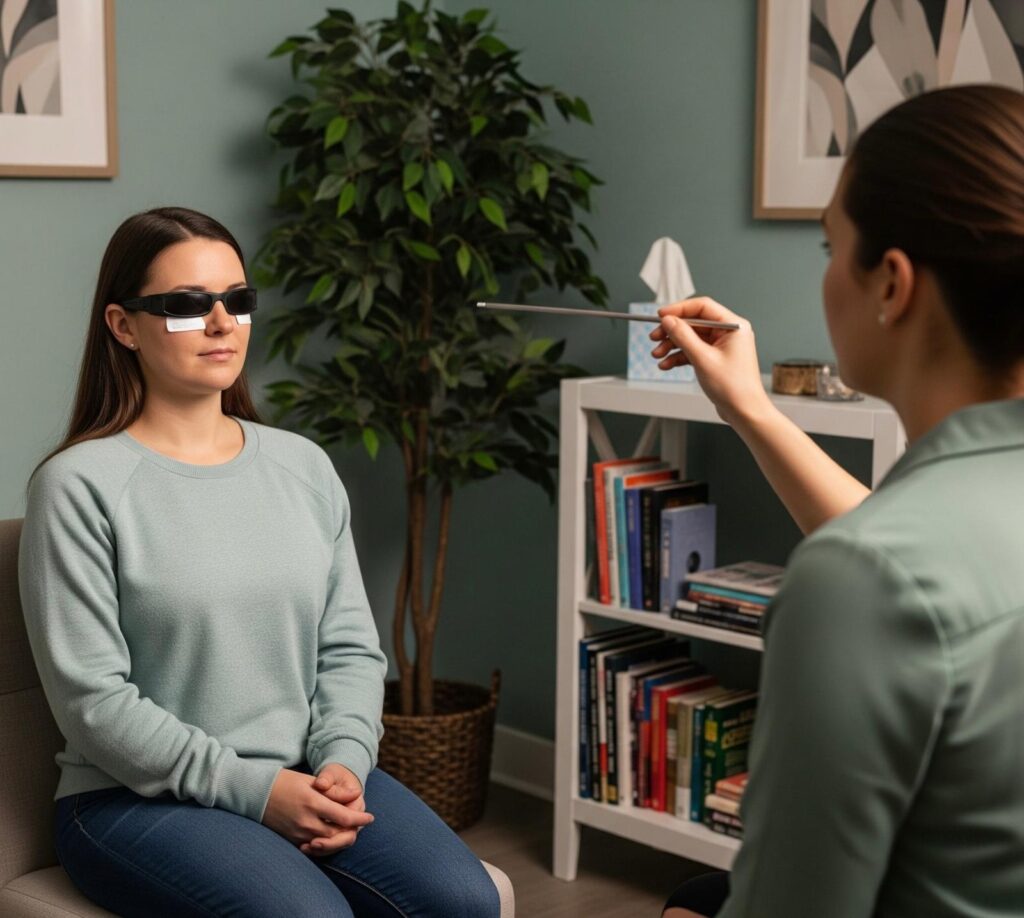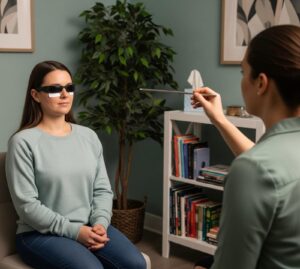Sleep is vital to physical health, mental well-being, and daily functioning. Yet debates persist around the “perfect” amount of sleep needed to optimise mood, cognitive performance, and overall quality of life (Sleep Health Foundation [SHF] 2021). Although age, lifestyle, and individual physiology all play a role, extensive research provides clear guidelines for ideal sleep durations across the lifespan. This article examines what the science says about how much sleep is enough, highlighting how factors such as age, genetics, and sleep quality affect the equation.
Keywords: Perfect amount of sleep, Sleep duration recommendations, Adult sleep guidelines, Restorative sleep, Sleep hygiene practices, Circadian rhythms, Sleep quality vs quantity
1. Why Sleep Duration Matters
1.1 Role of Sleep in Overall Health
Adequate sleep is not merely a luxury but an essential biological function that underpins memory consolidation, emotional regulation, immune defence, and metabolic balance (Hirshkowitz et al. 2015). Chronic short sleep can heighten risks of obesity, cardiovascular disease, and mood disorders, while oversleeping may also associate with certain health concerns such as depression or fatigue (Watson et al. 2015).
1.2 The Cost of Inadequate Sleep
Insufficient rest can impair concentration, decision-making, and reaction times. Prolonged periods of poor sleep correlate with increased workplace accidents and reduced academic performance (Irish et al. 2015). Conversely, ensuring a stable, adequate sleep schedule helps maintain consistent energy and supports cognitive functions like problem-solving and creativity.
2. Recommended Sleep Durations by Age
2.1 Infants, Children, and Teenagers
Babies and toddlers typically need more sleep to support rapid growth and brain development. According to guidelines:
- Newborns (0–3 months): 14–17 hours
- Infants (4–11 months): 12–15 hours
- Toddlers (1–2 years): 11–14 hours
- Preschoolers (3–5 years): 10–13 hours
- School-Age Children (6–13 years): 9–11 hours
- Teenagers (14–17 years): 8–10 hours
During adolescence, shifts in circadian rhythm often lead to later bedtimes and wake times, but adequate rest remains crucial for physical growth, emotional stability, and academic success (Paruthi et al. 2016).
2.2 Adults (18–64 Years)
For healthy adults, 7–9 hours per night is generally recommended (SHF 2021; Hirshkowitz et al. 2015). While some individuals function well at the lower end of this range, those with high physical or mental demands may benefit from closer to nine hours. Chronic undersleeping—below six hours—can accumulate “sleep debt,” impairing alertness and mood.
2.3 Older Adults (65+ Years)
Seniors often experience changes in sleep architecture, including lighter, more fragmented rest (Irwin 2015). Recommendations sit around 7–8 hours, although many older adults find they wake earlier or require short daytime naps. Maintaining a consistent routine and addressing potential medical issues like pain or sleep apnoea helps preserve sleep quality.
3. Variations in Individual Sleep Needs
3.1 Genetic and Chronotype Differences
Studies show some genetic variants influence whether a person is a natural “short sleeper” or requires longer rest (Stein & Pu 2012). Circadian typology—“early birds” vs “night owls”—can also shape ideal bedtimes and waking times. These inherent preferences suggest a flexible approach to recommended sleep durations.
3.2 Lifestyle and Environmental Factors
Demanding work schedules, caregiving responsibilities, or shift-based employment can limit sleep opportunities, necessitating strategies for “sleep banking” on days off or improving nap quality (Watson et al. 2015). Stress, caffeine consumption, and screen use before bed can further disrupt rest patterns, underscoring the importance of good sleep hygiene.
4. Quality vs Quantity: Why Both Matter
4.1 Sleep Architecture and Stages
Even if you achieve eight hours, fragmented or poor-quality sleep—marked by frequent awakenings or insufficient time in REM (rapid eye movement) and deep stages—can leave you feeling unrefreshed (Watson et al. 2015). Minimising disruptions and improving bedroom conditions (comfortable temperature, darkness, minimal noise) fosters restorative sleep phases.
4.2 Improving Sleep Efficiency
“Sleep efficiency” measures the ratio of time spent sleeping to time spent in bed. High sleep efficiency (above ~85%) suggests that once you go to bed, you spend most of the time asleep (Buysse et al. 2006). Individuals who struggle with insomnia may lie awake for extended periods, reducing sleep quality despite adequate total hours.
5. Consequences of Inadequate or Excessive Sleep
5.1 Short Sleep Duration Risks
Prolonged periods of under-sleeping—fewer than six hours nightly—link to:
- Impaired cognitive performance: Difficulty concentrating or retaining new information (Irish et al. 2015).
- Emotional dysregulation: Heightened risk of irritability, anxiety, and depressive symptoms (Irwin 2015).
- Physical health impacts: Increased potential for weight gain, hypertension, and lowered immune function (Watson et al. 2015).
5.2 Oversleeping and Potential Health Issues
Sleeping more than nine or ten hours consistently might correlate with underlying conditions—such as depression, chronic illness, or disrupted sleep architecture (Stein & Pu 2012). While some individuals naturally require longer rest, significant changes in sleep duration should prompt a medical review to rule out disorders like hypothyroidism or obstructive sleep apnoea.
6. Practical Tips for Attaining Optimal Sleep
6.1 Establish a Consistent Sleep Schedule
Aim for stable bedtimes and wake times, even on weekends. Maintaining a regular circadian rhythm supports deeper, more restorative rest (SHF 2021).
6.2 Create a Conducive Sleep Environment
- Dark, Cool, Quiet: A dark bedroom around 18–20°C fosters deeper sleep phases.
- Limit Screen Time Before Bed: Blue light from devices can suppress melatonin, delaying onset of sleep (Hirshkowitz et al. 2015).
6.3 Mindful Caffeine and Alcohol Use
Caffeine intake within six hours of bedtime can fragment sleep, while night-time alcohol consumption disrupts REM cycles, leading to non-restorative rest (Watson et al. 2015).
6.4 Manage Stress and Pre-Sleep Routine
Engage in relaxing activities—reading, gentle stretching, or mindfulness—to wind down (Irwin 2015). Chronic stress or anxiety may necessitate interventions like therapy or stress management programs to restore healthy sleep patterns.
7. When to Seek Help
7.1 Signs of Chronic Sleep Disturbance
- Difficulty falling asleep or frequent nocturnal awakenings.
- Persistent daytime fatigue or dozing off in inappropriate contexts (driving, working).
- Reliance on stimulants (e.g., excessive caffeine) to function normally (SHF 2021).
7.2 Consulting a Health Professional
If lifestyle adjustments prove insufficient, consider speaking with a GP or sleep specialist. Potential interventions include cognitive-behavioural therapy for insomnia (CBT-I), medical evaluations for sleep apnoea, or adjustments to mental health strategies (Hirshkowitz et al. 2015).
Conclusion
There is no one-size-fits-all number of hours for everyone, but general guidelines recommend 7–9 hours nightly for adults, with age-specific variations and individual factors guiding final decisions. Equally important is sleep quality—ensuring deep, uninterrupted rest that supports cognitive function, emotional stability, and physical health (SHF 2021). By prioritising consistent sleep routines, practising good sleep hygiene, and seeking professional advice if necessary, most individuals can find their ideal sleep balance, laying a foundation for better overall well-being.
References
- Buysse, D.J., Germain, A., Hall, M., Monk, T.H. & Nofzinger, E.A. 2006, ‘A Neurobiological Model of Insomnia’, Drug Discovery Today: Disease Models, vol. 3, no. 2, pp. 129–137.
- Hirshkowitz, M., Whiton, K., Albert, S.M. et al. 2015, ‘National Sleep Foundation’s Sleep Time Duration Recommendations: Methodology and Results Summary’, Sleep Health, vol. 1, no. 1, pp. 40–43.
- Irish, L.A., Kline, C.E., Gunn, H.E., Buysse, D.J. & Hall, M.H. 2015, ‘The Role of Sleep Hygiene in Promoting Public Health: A Review of Empirical Evidence’, Sleep Medicine Reviews, vol. 22, pp. 23–36.
- Irwin, M.R. 2015, ‘Why Sleep is Important for Health: A Psychoneuroimmunology Perspective’, Annual Review of Psychology, vol. 66, pp. 143–172.
- Sleep Health Foundation (SHF) 2021, How Much Sleep Do You Really Need?, SHF, viewed 8 February 2025, https://www.sleephealthfoundation.org.au/.
- SteIn, M.B. & Pu, J. 2012, ‘Clinical and Biological Phenotype of Chronic Sleep Disorders’, CNS Neuroscience & Therapeutics, vol. 18, no. 5, pp. 371–377.
- Watson, N.F., Badr, M.S., Belenky, G. et al. 2015, ‘Joint Consensus Statement of the American Academy of Sleep Medicine and Sleep Research Society on the Recommended Amount of Sleep for a Healthy Adult: Methodology and Discussion’, Sleep, vol. 38, no. 8, pp. 1161–1183.
Enjoyed Our Free Daily Mental Health Articles?
If you find value in our insights and resources, we’d love to hear from you! Please consider visiting our Google Business Profile nearest to your location and leaving a review. Your feedback not only helps us improve but also allows us to continue providing free, high-quality mental health articles to support your wellbeing every day. Thank you for your support!
How to get in touch
If you or your NDIS participant need immediate mental healthcare assistance, feel free to get in contact with us on 1800 NEAR ME – admin@therapynearme.com.au.







